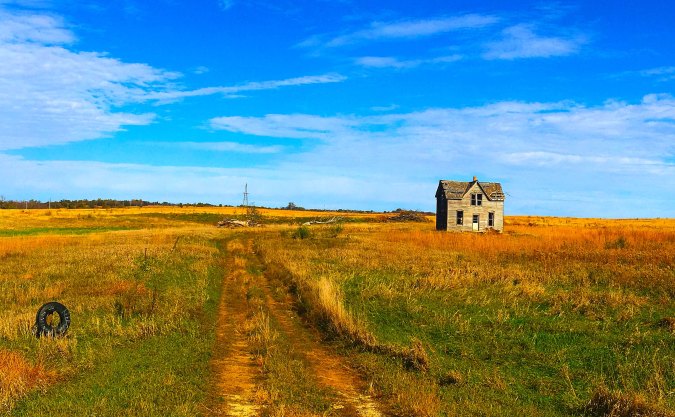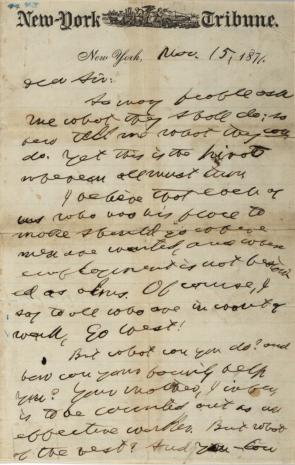
“So many people ask me what they shall do; so few tell me what they can do. Yet this is the pivot wherein all must turn. I believe that each of us who has his place to make should go where men are wanted, and where employment is not bestowed as alms. Of course, I say to all who are in want of work, Go West!”
Horace Greeley, New York, Nov. 15, 1871
Kansas before the Civil War
Before the Civil War, Kansas was Indian Territory. The west inhabited by the original Pawnee and Wichita. The Northeast and the Northwest Territory, by tribes forcibly removed from the east, including: Kickapoo, Miami, Delaware, and Shawnee. The southern part by the Osage and Cherokee, and others.
The Kansas Nebraska Act of 1854 began the process of change, opening up some land to settlement by non-Indians.
Kansas, or “Bloody Kansas” as it was known before the Civil War, was the great proving ground of the question – can free and slave co-exist? There were few moments of peace as abolitionist and slave owning groups battled for control of the territory. And the Civil War interrupted the process of settling Kansas when, by and large, most Kansans formed Union militias or joined the Union Army to settle the issue once and for all.
Kansas after the Civil War
The Homestead Act of 1862, signed into law by President Abraham Lincoln, granted “any citizen, or intended citizen who had not borne arms against the United States government” 160-acre plots of public land for the price a small filing fee. The removal of the Osage Indians in 1870 opened more land to all for a cheap price.
For decades to follow, easterners seeking a new opportunity came to Kansas. So too did immigrants. Sometimes they came as religious groups – Quakers, River Brethren, Dunkards and German Baptists, and Mennonites from southern Russia. Or as a combination of both religion and country – Germany, Sweden, and France. Or as free Blacks fleeing Southern conditions. Sometimes as soldiers seeking a new start.
Why the small farm disappeared
They came for the land. They came for a new life. They built their houses, tilled the soil, established schools and communities.
And for the most part they thrived. That is until the tractor arrived in the 1920s and large scale mechanized farming changed a way of life. That and ill thought out farming practices and then a series of dry years in the 1930s, changed the landscape.
There were other forces at work as well. Industry came to Kansas. The oil boom, the airplane, and manufacturing in general provide opportunities that previously did not exist.
A more subtle force was the effect of school consolidation. Up until 1the 1920s, Kansas, like many state on the Great Plains, was full of thousands of one-teacher, one-room, country schools. County boards began the slow process of consolidating one room schools into larger schools located in cities. This was aided by the fact that in the 1930s, dirt roads became asphalt roads, and cars became commonplace.
The world was shrinking at the same time that cities were growing and farms were becoming larger.
Addendum, Horace Greeley’s letter to R. L. Sanderson, a young newspaper correspondent.
 Dear Sir:
Dear Sir:
So many people ask me what they shall do; so few tell me what they can do. Yet this is the pivot wherein all must turn.
I believe that each of us who has his place to make should go where men are wanted, and where employment is not bestowed as alms. Of course, I say to all who are in want of work, Go West!
But what can you do? and how can your family help you? Your mother, I infer, is to be counted out as an effective worker. But what of the rest? And you – can you chop? Can you plow? Can you mow? Can you cut up Indian corn? I reckon not. And in the west it is hard to find such work as you have been accustomed to. The conditions of living are very rude there.
On the whole I say, stay where you are; do as well as you can; and devote every spare hour to making yourself familiar with the conditions and dexterity required for the efficient conservation of out-door industry in a new country.
Having mastered these, gather up your family and Go West!
Yours,
Horace Greeley